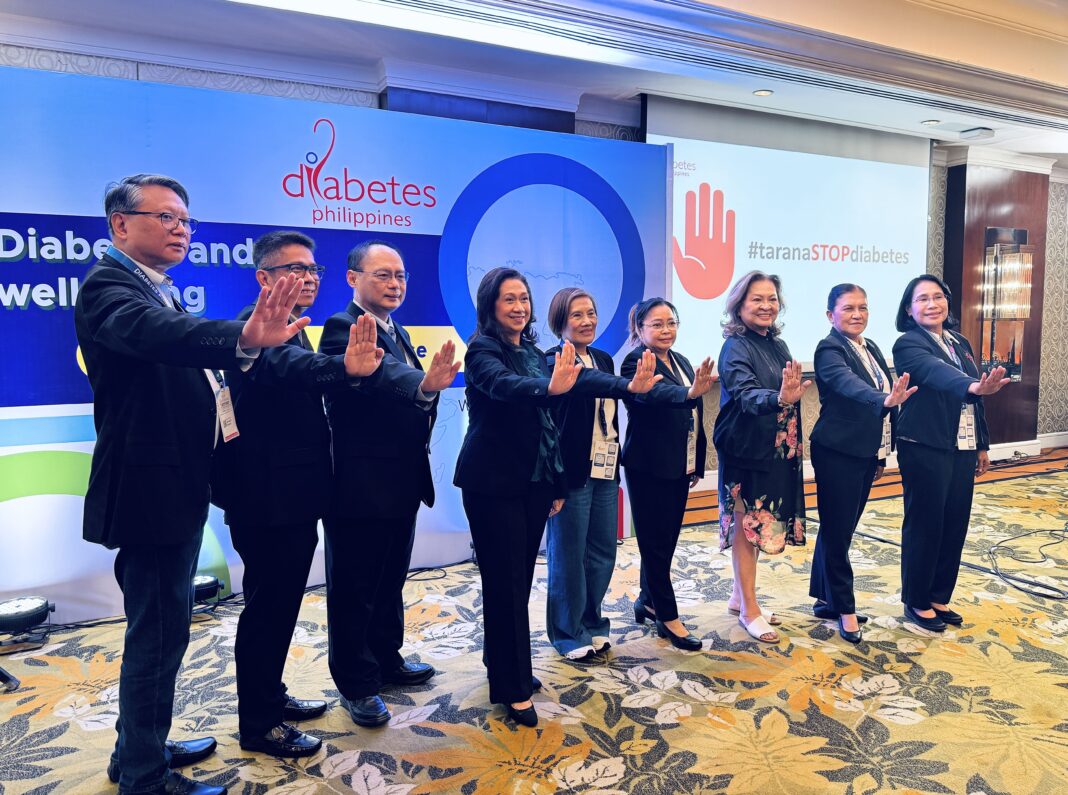Manila, Philippines — November 12, 2025 — Diabetes Philippines (DP) is calling for stronger efforts to address diabetes as a workplace issue, urging employers to prioritize the health and well-being of their workforce. As millions of Filipinos face long hours, high stress, and sedentary routines, diabetes is fast becoming one of the most pressing yet overlooked challenges in the modern workplace.
In observance of World Diabetes Day (WDD) 2025, themed “Know more and do more for diabetes at work,” DP is leading a nationwide campaign to raise awareness about how work environments influence lifestyle-related diseases. The organization’s advocacy is supported by healthcare company Novo Nordisk Philippines, which shares the commitment to promoting diabetes education, prevention, and care in the country.
According to the International Diabetes Federation (IDF), an estimated 4.73 million Filipino adults aged 20 to 79 live with diabetes (6.6% prevalence), and over 2.5 million remain undiagnosed—many of them part of the nation’s active workfo[1]rce.
Diabetes as a Workplace Issue
“Diabetes doesn’t just affect individuals—it impacts the way we work and the way our businesses perform,” said Dr. Fatma Tiu, President of Diabetes Philippines. “When employees are constantly stressed, skip meals, or sit for hours without physical activity, we create the perfect environment for diabetes to thrive. That makes this a workplace issue as much as it is a public health issue.”
The modern Filipino workplace, with its long hours, irregular eating habits, and limited movement, has become a major contributor to lifestyle diseases. Dr. Tiu added, “Healthy employees are productive employees. Companies that invest in diabetes prevention and management not only protect their workforce but also strengthen their bottom line.”
The Weight of the Matter
Obesity remains one of the strongest risk factors for diabetes, and its prevalence continues to rise. According to the 2023 National Nutrition Survey by the Department of Science and Technology’s Food and Nutrition Research Institute (DOST-FNRI), four out of 10 Filipino adults (39.8%) are overweight or obese[2]—a trend that worsens as more jobs become desk-bound.
“The weight of the matter is this: the way we work is shaping the way we get sick,” said Dr. Reynaldo Rosales, Treasurer of Diabetes Philippines. “Obesity and diabetes are deeply connected. A sedentary lifestyle and poor eating habits create insulin resistance over time. Without early intervention, we risk seeing diabetes affect people at younger ages.”
Dr. Rosales emphasized that small changes in the workplace can yield major health benefits—from regular health checks to healthy food options and activity breaks during the workday.
A Shared Call to Action
Aligned with the World Diabetes Day 2025 theme, “Know more and do more for diabetes at work,” Diabetes Philippines is strengthening its “Tara Na, Stop Diabetes” campaign—a national movement encouraging Filipinos to take proactive steps toward prevention and management, starting in the workplace.
“Education and awareness must begin where people spend most of their day—at work,” said Dr. Nines Bautista, Vice Chairman and Vice President of Diabetes Philippines. “Our call to action is clear: let’s make every workplace a space for health. Through ‘Tara Na, Stop Diabetes,’ we aim to empower employees and employers alike to build healthier habits together.”
Dr. Bautista noted that cross-sector partnerships are key to success. “We value the support of organizations like Novo Nordisk Philippines that share our vision for a healthier, more informed workforce.”
Industry Partnership for Healthier Workplaces
Novo Nordisk Philippines, a partner of Diabetes Philippines, continues to support efforts that promote awareness, early detection, and management of diabetes nationwide.
“Workplaces are critical environments for promoting good health,” said Wei Sun, General Manager of Novo Nordisk Philippines. “By supporting Diabetes Philippines and its initiatives, we hope to help organizations create spaces where prevention and early action become part of everyday work life.”
A Collective Responsibility
Global evidence shows that workplace interventions—such as health screenings, fitness programs, and nutrition education—can significantly reduce absenteeism, healthcare costs, and long-term complications.
“Diabetes and obesity are not just personal problems; they’re community challenges,” said Dr. Bautista. “The workplace can either contribute to the problem or become part of the solution.”
As the Philippines joins the global observance of World Diabetes Day, Diabetes Philippines urges employers, policymakers, and communities to act decisively toward creating healthier, more supportive work environments.
The message is clear: healthier workplaces build healthier employees—and a healthier nation.
[1] https://idf.org/our-network/regions-and-members/western-pacific/members/the-philippines/
[2] https://www.fnri.dost.gov.ph/index.php/programs-and-projects/news-and-announcement/880-dost-fnri-presents-the-latest-ph-nutrition-situation


